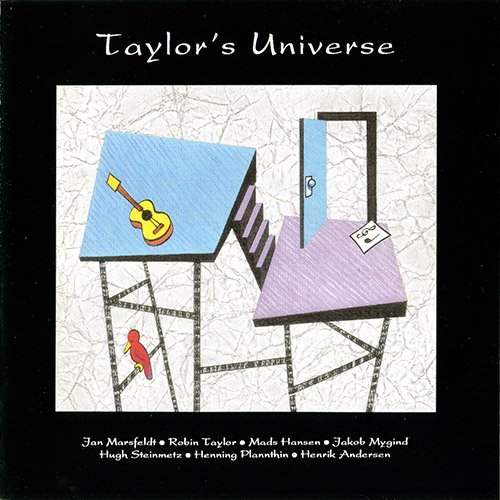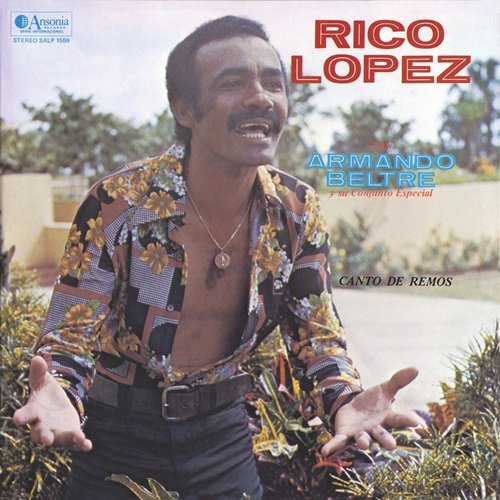Johnny Rivers - Meanwhile Back At The Whisky A Go Go (Reissue, Remastered) (1965/1998)
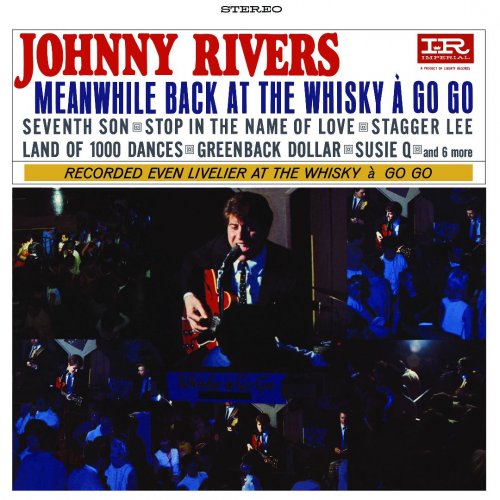
Artist: Johnny Rivers
Title: Meanwhile Back At The Whisky A Go Go
Year Of Release: 1965/1998
Label: Magic Records
Genre: Rock & Roll, Garage Rock, Rockabilly, Blue-Eyed Soul
Quality: Flac (image, .cue, log)
Total Time: 49:08
Total Size: 302 Mb
WebSite: Album Preview
Title: Meanwhile Back At The Whisky A Go Go
Year Of Release: 1965/1998
Label: Magic Records
Genre: Rock & Roll, Garage Rock, Rockabilly, Blue-Eyed Soul
Quality: Flac (image, .cue, log)
Total Time: 49:08
Total Size: 302 Mb
WebSite: Album Preview
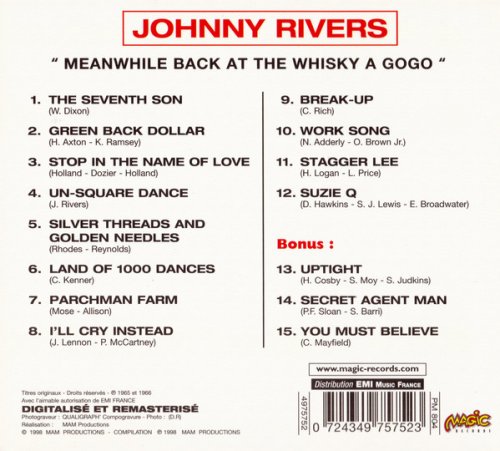
Tracklist:
01. The Seventh Son
02. Green Black Dollar
03. Stop In The Name Of Love
04. Un-Square Dance
05. Silver Threads And Golden Needles
06. Land Of 100 Dances
07. Parchman Farm
08. I'll Cry Instead
09. Break-Up
10. Work Song
11. Stagger Lee
12. Suzie Q
Bonus Tracks:
13. Uptight
14. Secret Agent Man
15. You Must Believe
You'd think that by his fourth album in this format from this venue, Johnny Rivers would start to get a little redundant, but that wasn't the case, as is obvious from the opening track, "Seventh Son" -- Rivers takes an approach that manages to intersect with swamp rock, white soul, and garage punk, all neatly wrapped up in three minutes so potent that it shot into the Top Ten on the Billboard Hot 100. One doesn't need to check a release date on this album to know that folk-rock was still the happening sound at the time Rivers cut it; he successfully puts his own lean, mean stamp on the sound with his ominous, stripped-down rendition of "Greenback Dollar," presenting a side of the song totally missed by the Kingston Trio, and a version of "Silver Threads and Golden Needles" owes a lot to Dale Hawkins (whose "Suzie Q" also gets covered here) and Chuck Berry. Rivers also presents a powerful white soul sound on this record, reaching back to his New Orleans background for "Land of 1,000 Dances" (as well as "Stagger Lee") and out to Motown on his guitar and bass-driven version of "Stop in the Name of Love." Indeed, one has to wonder how many times a struggling young John Fogerty, living on the other end of California and the far side of success, listened to this record (and also the pounding versions of "Parchman Farm" and "Suzie Q" here) and started germinating his own ideas about an even more suitable song like "I Heard It Through the Grapevine." He also gives a nod to the Beatles, covering their most stripped-down rock & roll number, "I'll Cry Instead" -- one of their least-covered songs -- in a slightly more loping, relaxed, and soulful manner.
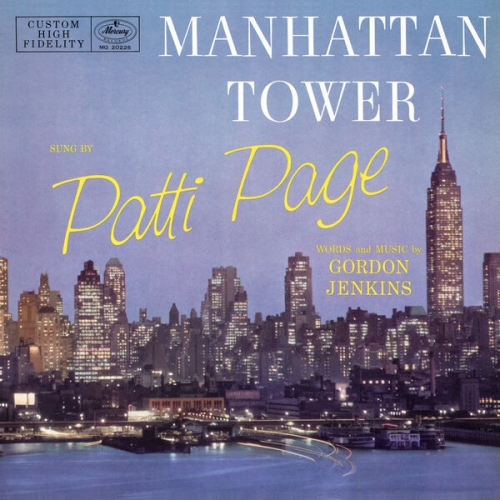
![Mammal Hands - Circadia (2026) [Hi-Res] Mammal Hands - Circadia (2026) [Hi-Res]](https://www.dibpic.com/uploads/posts/2026-02/1771945393_folder.jpg)
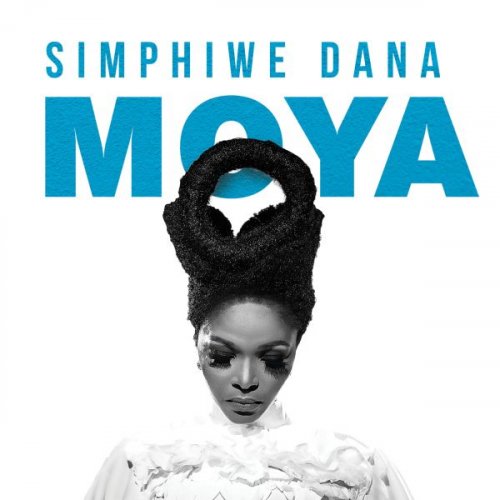
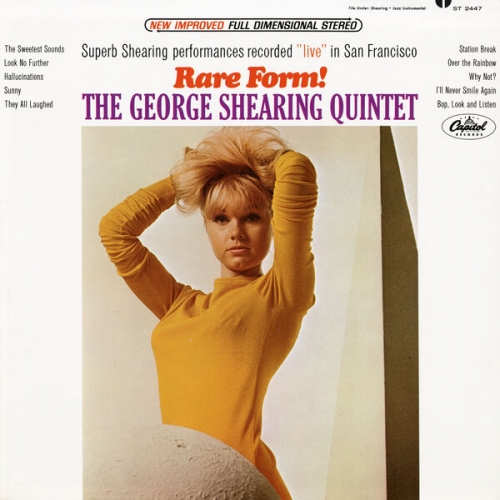

![Chad Lefkowitz-Brown - City Spirit (2026) [Hi-Res] Chad Lefkowitz-Brown - City Spirit (2026) [Hi-Res]](https://www.dibpic.com/uploads/posts/2026-02/1772171883_y3mc4z2lmsr7a_600.jpg)
![Alcides Neto - Amú (2026) [Hi-Res] Alcides Neto - Amú (2026) [Hi-Res]](https://img.israbox.com/img/2026-02/26/mtckmw6jmvula60sukh6h3h26.jpg)
